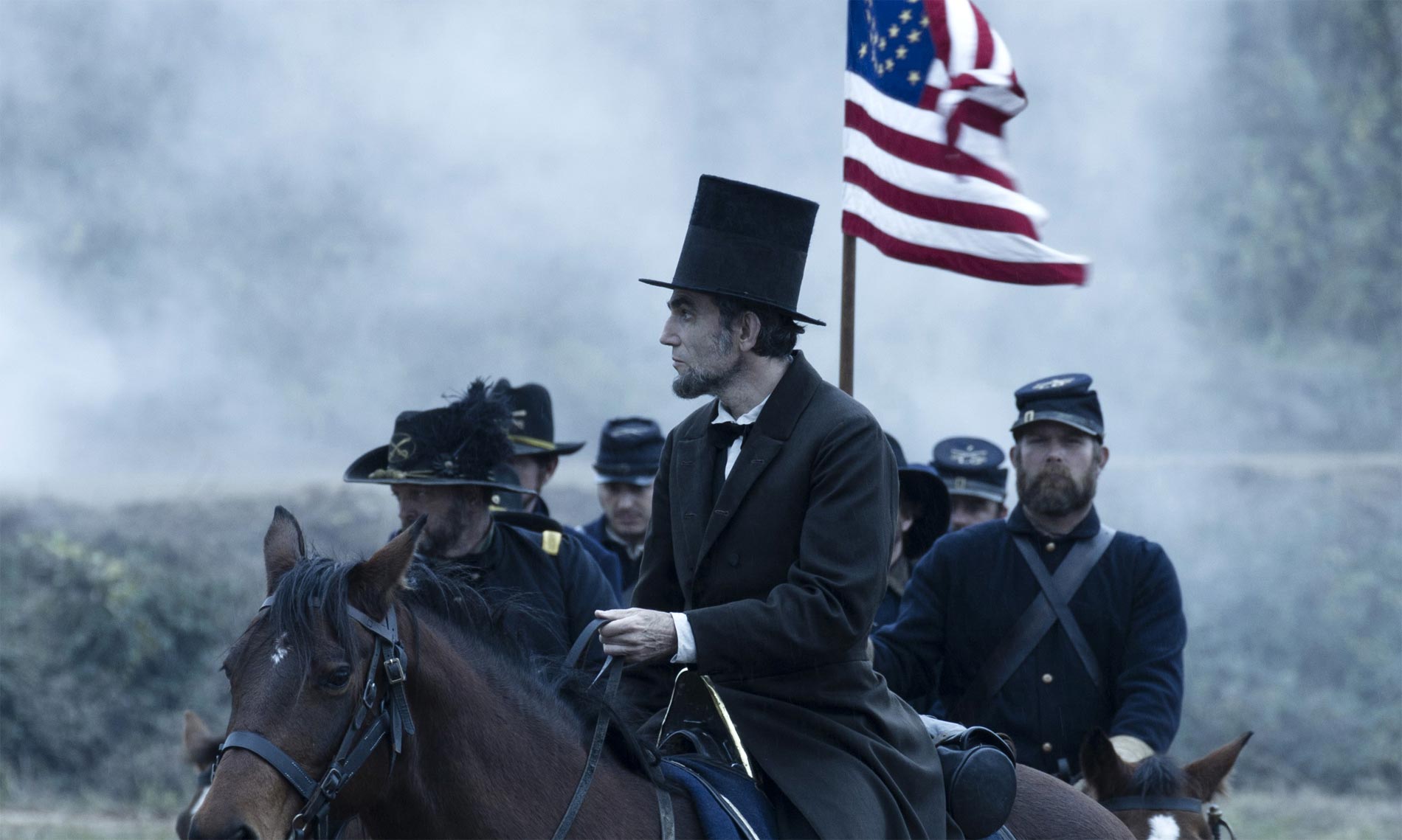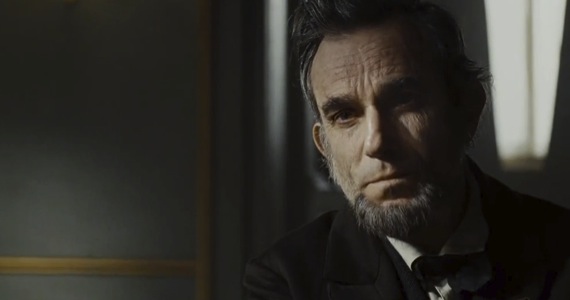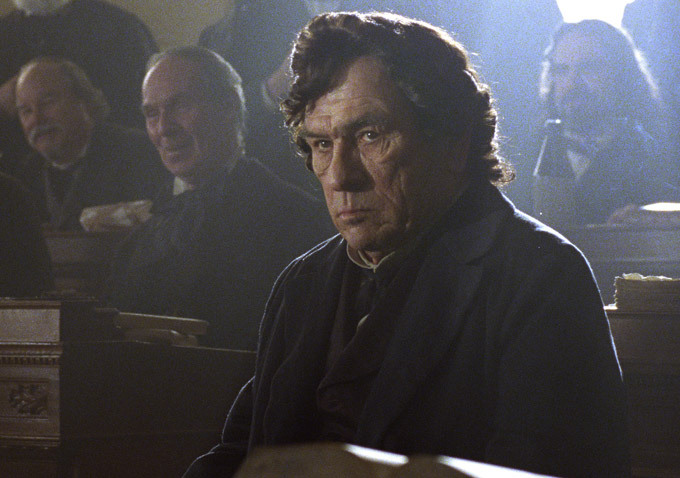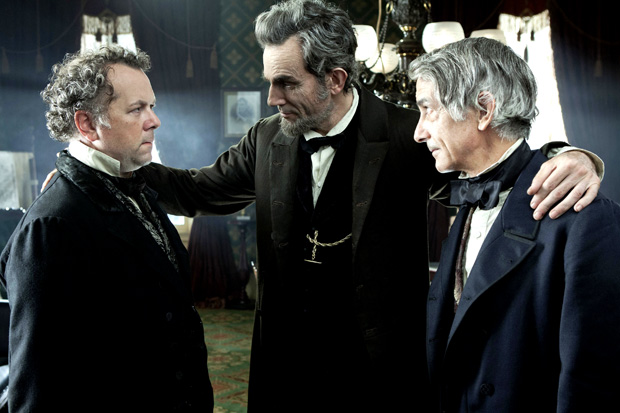|
Are films
too conveniently timed to coincide with contemporary moments or do they
force
us to address the unwanted memories and atrocities of the past? To this
day,
America struggles to address its racial history, determined to shield
itself
from its ugly and divided past, particularly in pop culture. Only two
years ago
an edition of Mark Twain's novel "Adventures
of Huckleberry Finn" (1884) was published replacing the word
"nigger" with "slave".
The same
attitude applies in Hollywood. Director Spike Lee declared he wouldn't
view
Quentin Tarantino's slave-Western Django
Unchained, as it would be insulting to his ancestors. The film has
also
been criticised for the frequency of the word "nigger" too. However,
this year Steve McQueen (Shame) will
also be releasing a film called Twelve
Years a Slave and the frequency of slavery as a film topic could
infer that
there is genuine interest in exploring the subject as a result of
recent
America history.

Yet despite
documenting Abraham Lincoln's efforts to pass the 13th Amendment to
abolish
slavery, Steven Spielberg's Lincoln isn't
concerned with foreshadowing modern history, like Obama's 2008
inauguration.
Spielberg bought the rights to Doris Kearns Goodwin's book "Team of
Rivals" before it was written in the early part of the last decade.
The
film began development under the Bush administration and Spielberg
stated in an
interview with the ABC: "It's not about America today, but it has
tremendous repercussions looking back about what America could be today
under
the right leadership".
Spielberg
is deemed one of the most iconic Hollywood filmmakers since Frank
Capra. Through
cinema he has recreated some of the most important historical events of
the
last century, including the Holocaust (Schindler's
List) and the Invasion of Normandy (Saving
Private Ryan). He is a great fit for this material but like Capra,
he is
susceptible to over sentimentalising his most work, as was the case
recently
with War Horse (2011).

Through
their films both directors have shared a vision of America becoming an
idealised land of equality. For Spielberg, this stemmed from childhood
as he
was tormented for being Jewish and admitted to being embarrassed by his
heritage. After 9/11, the way that the Bush administration shattered
relations
with the Middle East stung Spielberg's American Dream.
Hence, Lincoln is a film concerned by
the need
for great leadership and social equality, though at the expense of
bending the
political and legal rules. The haunting image of a pile of amputated
limbs,
thrown into a ditch, visualises the film's moral dilemma and poses a
question to
the War on Terror itself: in times of conflict, how long can a
political party
withhold change before engaging with social reform?

Following
his re-election, President Lincoln (a magnificent, chameleon
performance by
Daniel Day-Lewis) faces pressure to end the Civil War and abolish
slavery. Yet
he is reminded by his staff, including William Seward (David
Strathairn), that
ending the war before the vote will mean there is no reason to
emancipate
slavery: "It's either the amendment or this confederate peace, you
cannot have both." Lincoln
is also urged by wife Mary-Todd (Sally Field) to end the war because
their
eldest son Robert (Joseph Gordon-Levitt) is determined to enlist in the
army.
Lincoln requires twenty votes to pass the motion, including votes from
the
Democratic Party, and enlists some men (John Hawkes, James Spader) to
offer
jobs as bribes to those who will support the vote.
What's
surprising about the film is that despite encompassing many of
Spielberg's
staples, the lost child, an anti-war message and social and racial
equality, it
is without the director's usual preachiness and cinematic gaudiness.
The
narrative is conventionally structured but resembles a play rather than
an
epic. The screenplay by playwright Tony Kusher (Angels in
America) gives the film and its backroom drama well
researched and highly colourful conversations to work through. I did
find some
of the political terminology, combined with Early Modern English
("buzzard's guts!" "water closet"), to be intimidating at
times though.

Buoying
the film past these challenging moments is the amount of humour and
wit. There
are hilarious conversations and anecdotes in the film, which are
respected by
Spielberg's restrained direction. The colours are gloomy and drab and
the
camerawork is sparse. The film is mostly compromised of men talking in
rooms
and the containment of these scenes is a reminder of, for better or
worse,
where leadership begins and ends. Relying heavily on the charisma of
the cast
is an intelligent move by Spielberg as no one here is anything less
than
convincing. Tommy Lee Jones is hugely enjoyable in a highly theatrical
turn as
Thaddeus Stevens, whose public image and values are tested as he
momentarily
suppresses his passion and fierceness to help his party secure the
vote.
One of
the few cinematic moments is an opening scene where we see the abstract
images
from Lincoln's dream about a ship. He later says in the film: "We're whalers!"
This reflects the same themes equal to Herman Melville's novel
"Moby-Dick" (1851): a Manifest Destiny and the impossible search for
equality.
Spielberg and Lincoln therefore share a collective and optimistic dream
for
America, but the director resists lingering over the film's
contemporary
relevance. His film and its necessity for leadership achieves an
applicability
that extends far beyond what has happened in the last four years of
American
history and surges deep into an uncertain future.
|